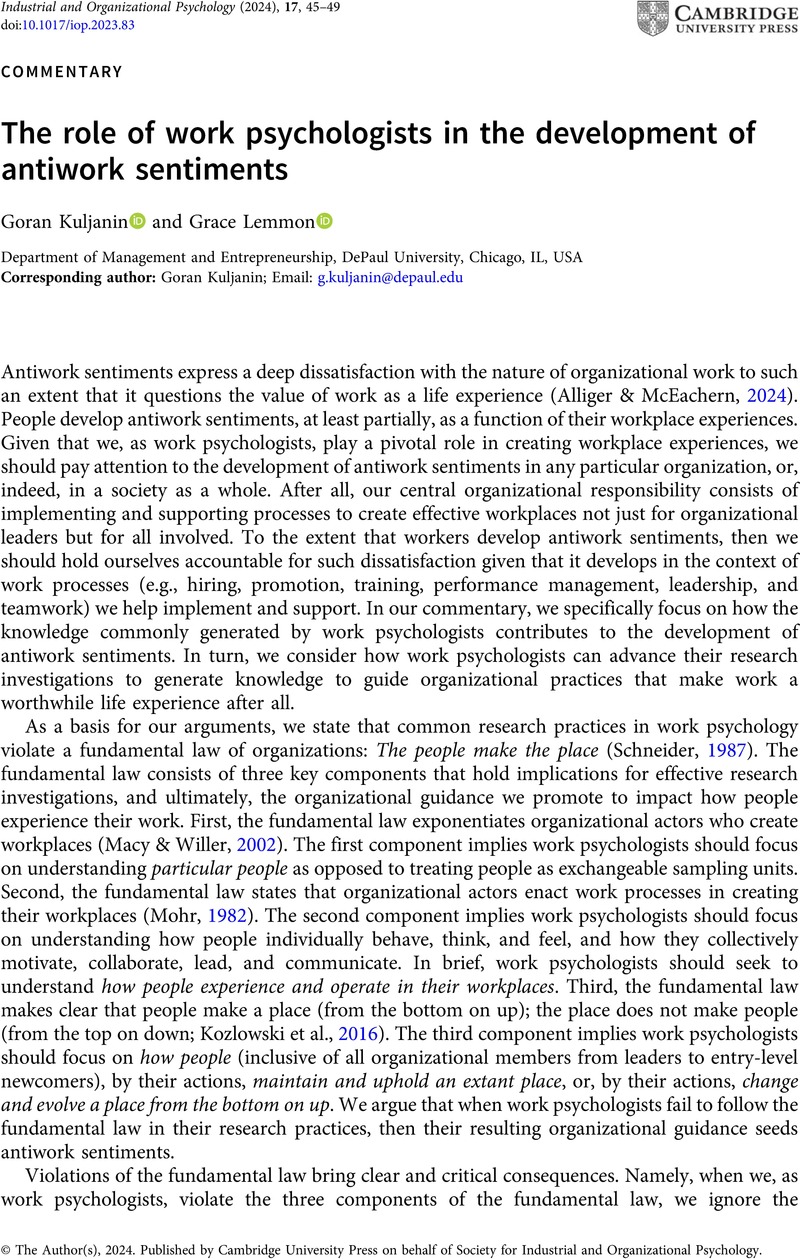Crossref Citations
This article has been cited by the following publications. This list is generated based on data provided by Crossref.
Kuljanin, Goran
Braun, Michael T.
Grand, James A.
Olenick, Jeffrey D.
Chao, Georgia T.
and
Kozlowski, Steve W.J.
2024.
Advancing Organizational Science With Computational Process Theories.
The Leadership Quarterly,
Vol. 35,
Issue. 4,
p.
101797.



